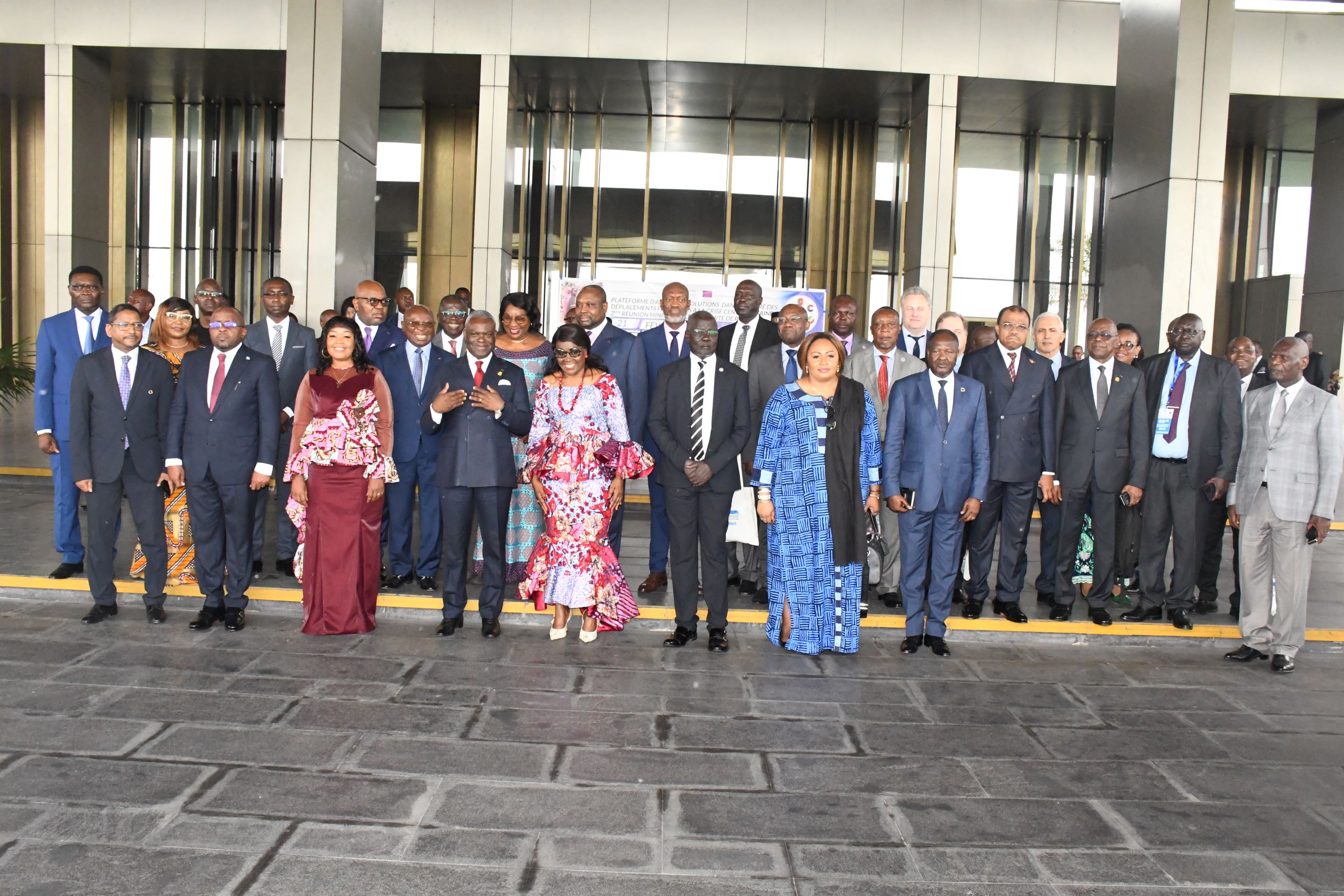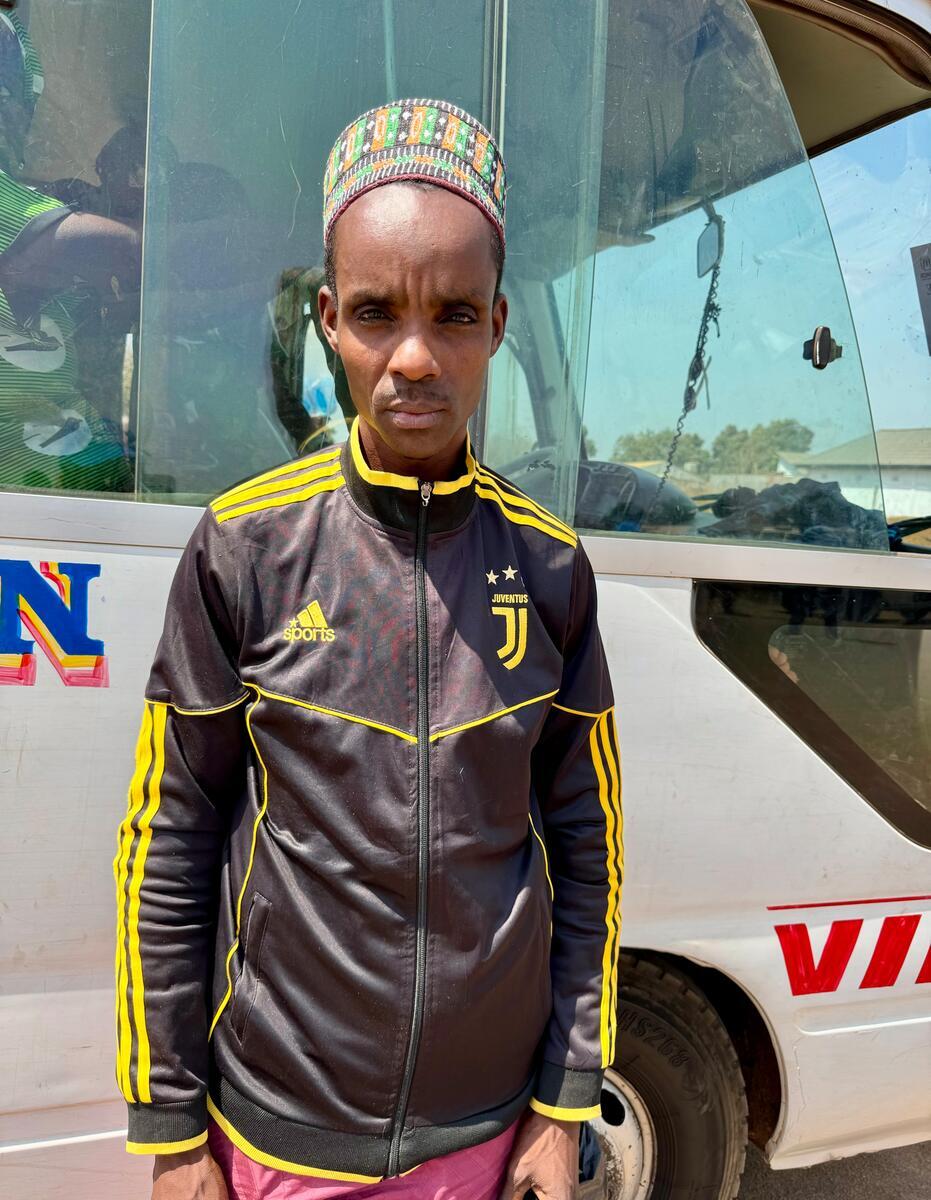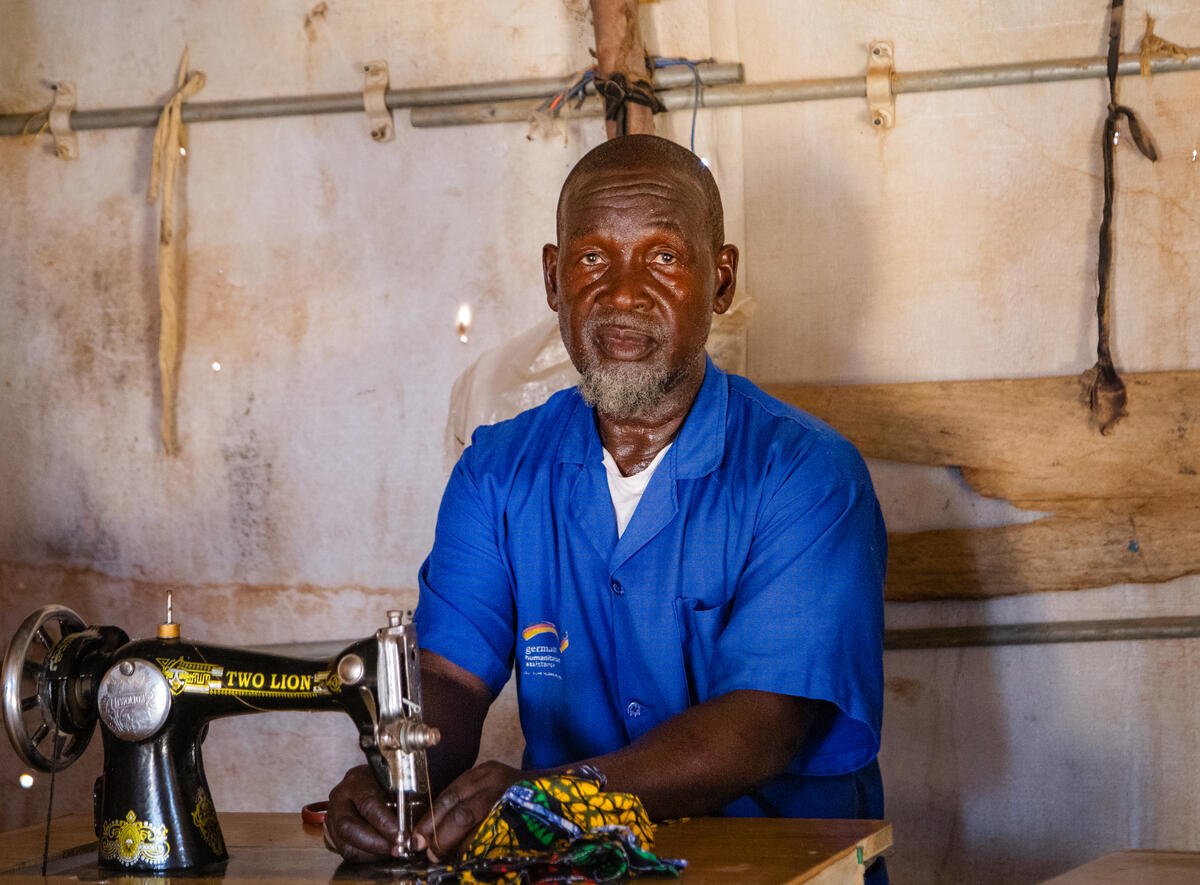Somali refugee father and son set off to a new life after years in Ethiopia
Somali refugee father and son set off to a new life after years in Ethiopia

Ahmed moments before his departure from Ethiopia on resettlement after 15 years in exile.
For over 15 years, 53-year-old Ahmed lived on a strenuous existence in exile but never gave up on hope. Today, he is relieved to resettle with his son to the United States of America. At the boarding gates, minutes before embarking towards his new home, his eyes expressed gratitude, yet the wrinkles covering his face relate bitter stories of loss and sorrow.
Ahmed fled Somalia in 2008 when conflict erupted in the country, and his village in Sablaale district, south of the capital Mogadishu, was violently attacked by armed groups.
That night, a grim chapter opened for the construction worker, who witnessed the killing of his wife and the loss of everything he owned. Together with hundreds of other families, he and his five children ran for their lives, bullets whizzing past their heads.
Amid the fear and confusion, he lost sight of four of his children.
It took weeks to reach to the border before he managed to cross to safety into Ethiopia with only his youngest son, Ilyas. They settled in the Sheder refugee camp, in the country’s Somali region, uncertain about their future. Once able to sustain himself and his family, he was now forced to rely on humanitarian assistance to survive.
It took time to find his footing in the camp but being responsible for his son quickly pushed him to look for a source of income. He found employment as a security guard with a humanitarian organization in Sheder and was able to provide for his family until a sudden illness kept Ilyas in bed with a high fever for several days. Many treatments were provided but with little success.
What started as a partial loss of sensitivity in his limbs turned gradually into impaired mobility. Ahmed was forced to quit his job and dedicate his days to taking care of his child, who was totally dependent on his father to feed, bathe, and move him in and out of bed. In the meantime, their savings depleted, and the food and assistance provided by UNHCR and partners were the only sustenance they received.
With Ahmed unable to work, and Ilyas’s medical conditioning worsening, the situation became untenable as nearby hospitals were unable to help with the little means they possessed. Resettlement became the only option to ensure Ahmed, and his family could live safely and in basic dignity.

Ahmed and his son depart on resettlement after 15 years in exile in Ethiopia.
“My first objective is to have doctors in the US looking at my son’s case and get him adequate treatment,” said Ahmed, describing health challenges that 20-year-old Ilyas has lived with for half his life. “I also want to learn English to be able to work and contribute to the society that is so generously hosting us”.
Resettlement is a lifeline for many refugees and their families, offering hope and a durable solution for some of the most vulnerable people forced to flee. It also provides refugees with a unique and meaningful chance to rebuild their lives, breaking vicious cycles of displacement for many. Over 14,000 refugees have already departed on resettlement this year from Ethiopia to different host countries across the world, with more expected to leave before end of 2024.
Ethiopia hosts many refugees originating from three major refugee situations in the region, including South Sudan, Somalia, and Eritrea. Protracted situations require durable solutions, like resettlement and other complimentary pathways, along with inclusion policies, for refugees to ensure they can rebuild their lives with dignity, avoiding the risk of seeing entire generations of families spending their lives in refugee camps.
“Resettlement allows refugees the resumption of a normal life. A life in which they can be safe, self-reliant, and live in solidarity with others,” said Andrew Mbogori, UNHCR’s Representative in Ethiopia. “We thank the Ethiopian Government for generously hosting over one million refugees, and all countries offering resettlement slots and other durable solutions to the forcibly displaced”, said Mbogori.
Despite this life-changing solution, resettlement places are available for fewer and fewer refugees globally. Almost 3 million refugees globally are expected to be in need of resettlement in 2025. UNHCR continues to call on countries to redouble their efforts to provide more resettlement places and provide a safe home for those in need.
For Ahmed and Illyas, they hope their new life affords them the chance to reunite with family. Ahmed has recently learned that his other four children, who went missing all those years ago, are alive and residing in Europe. The thought of being a family again filled his heart with joy and his eyes with tears.
“I spent uncountable nights praying for them to be safe and protected, and now I pray for the day we will all reunite again”, said Ahmed.








